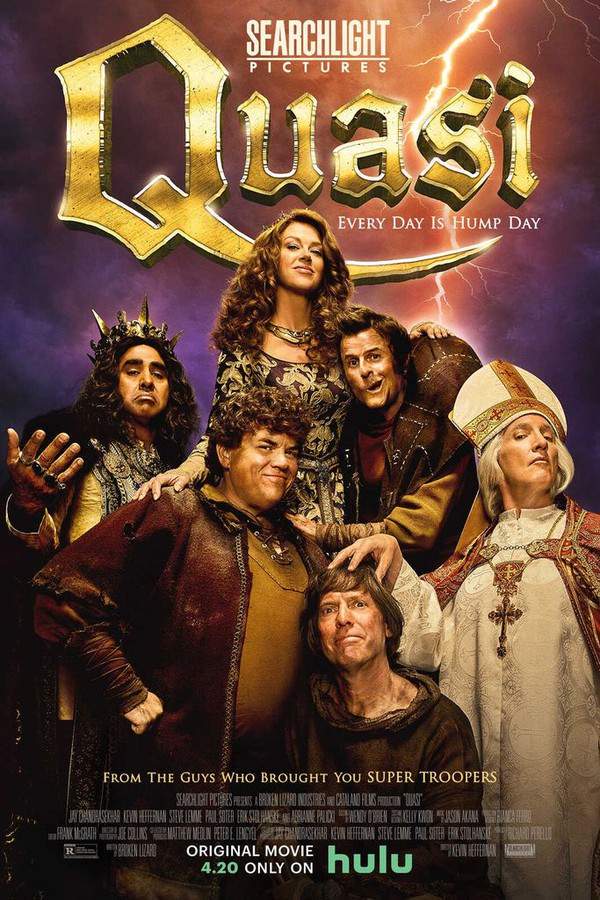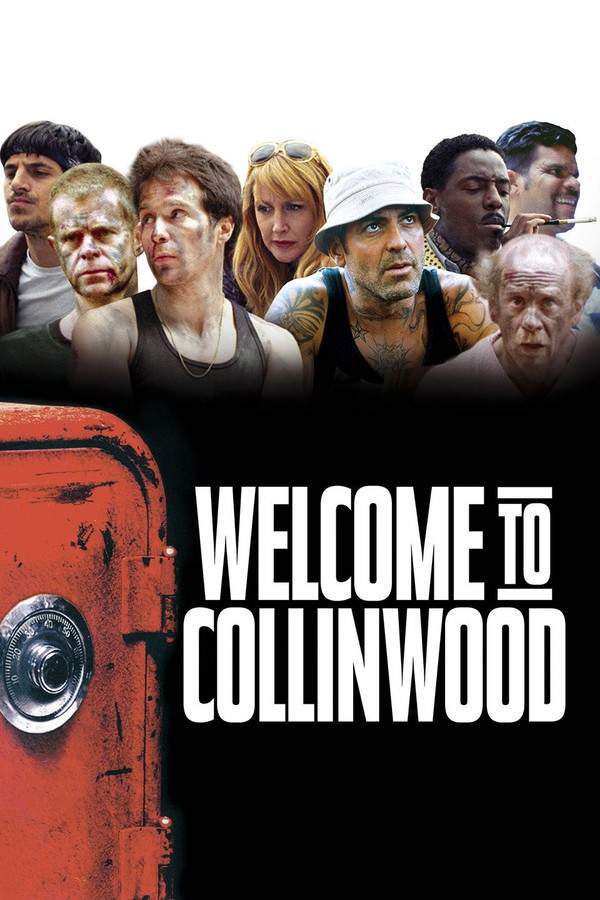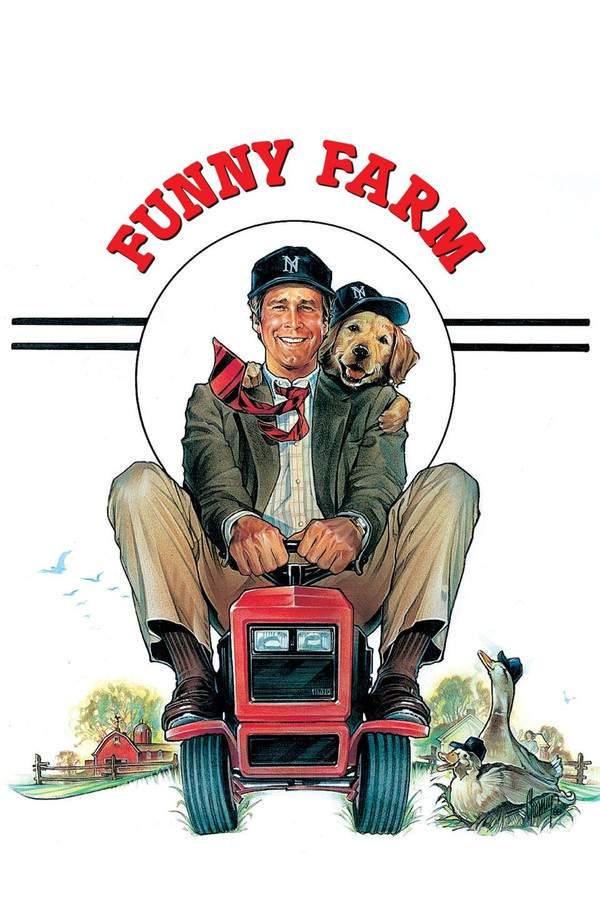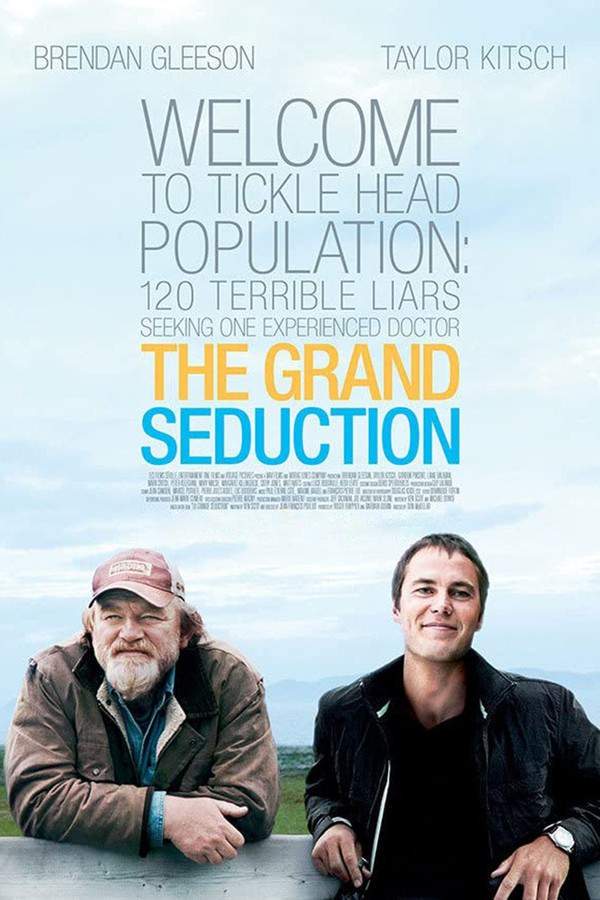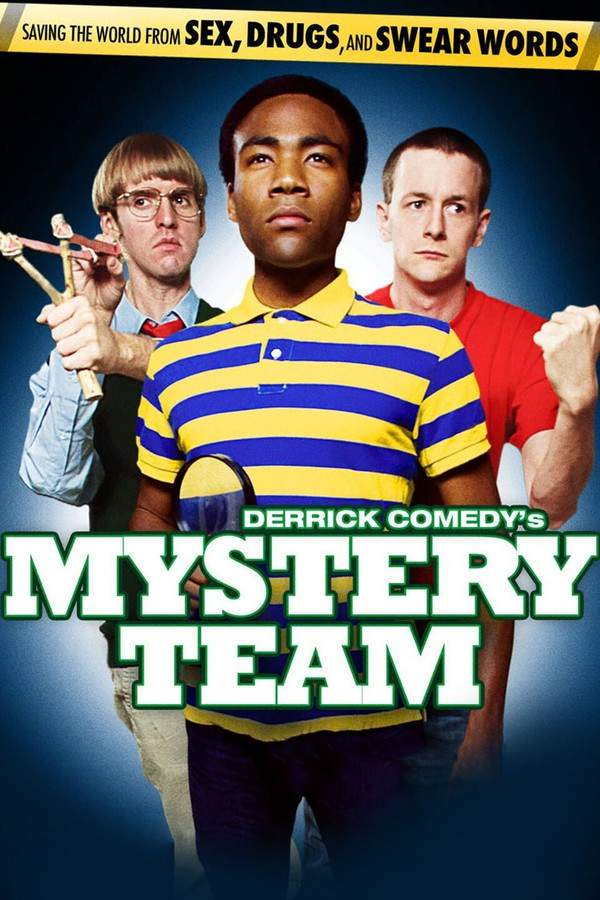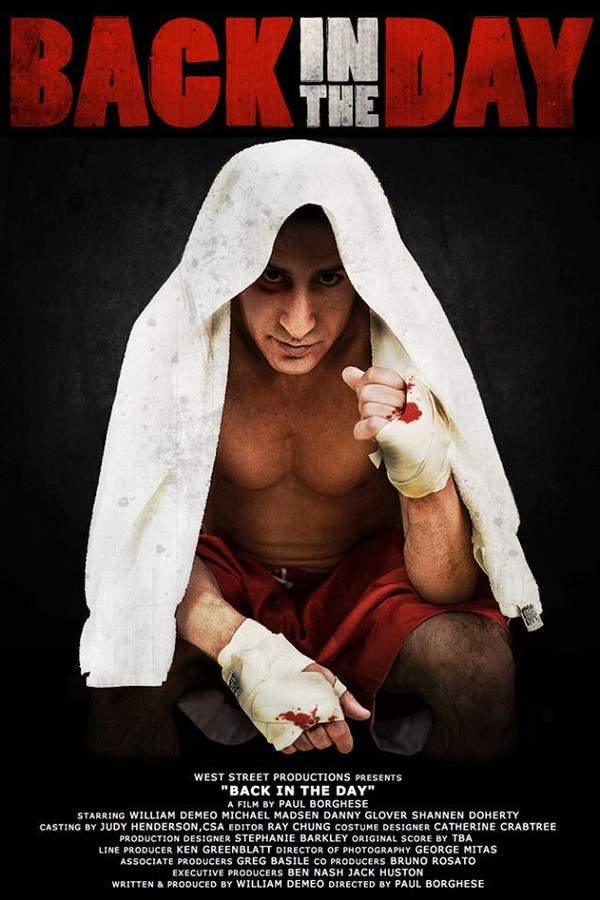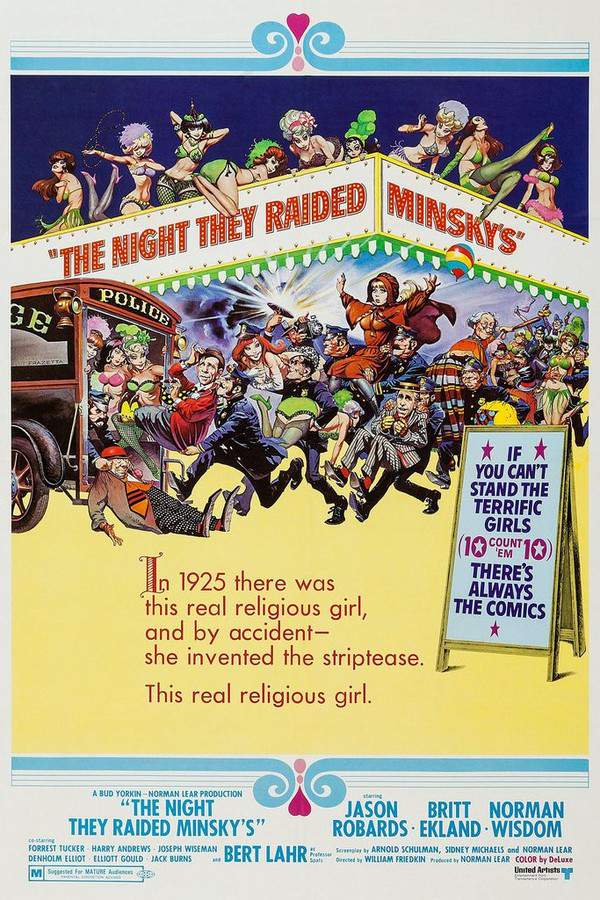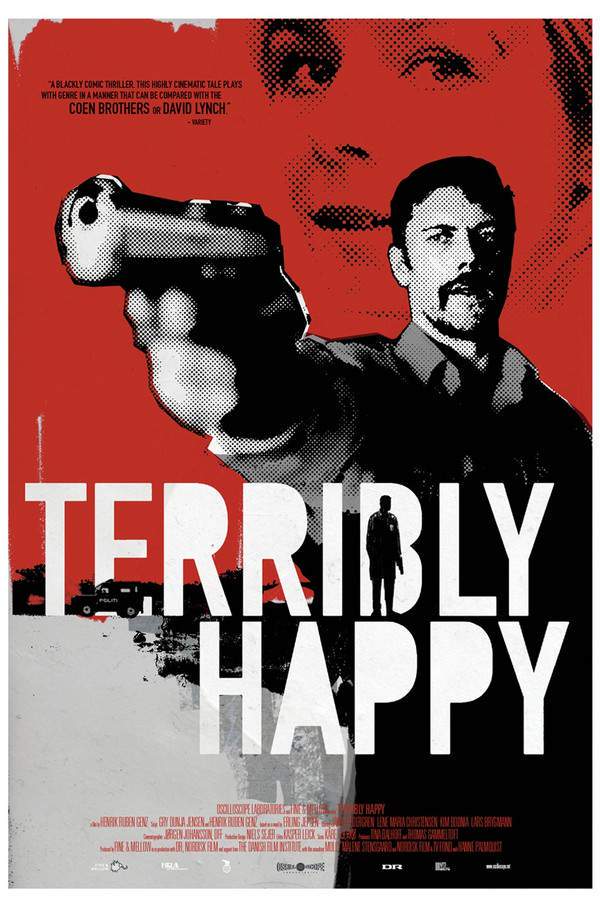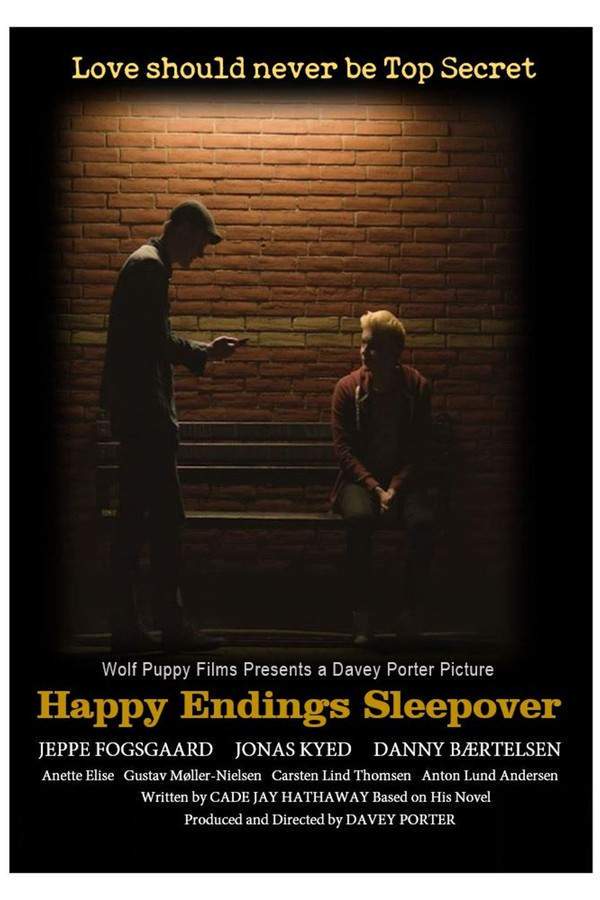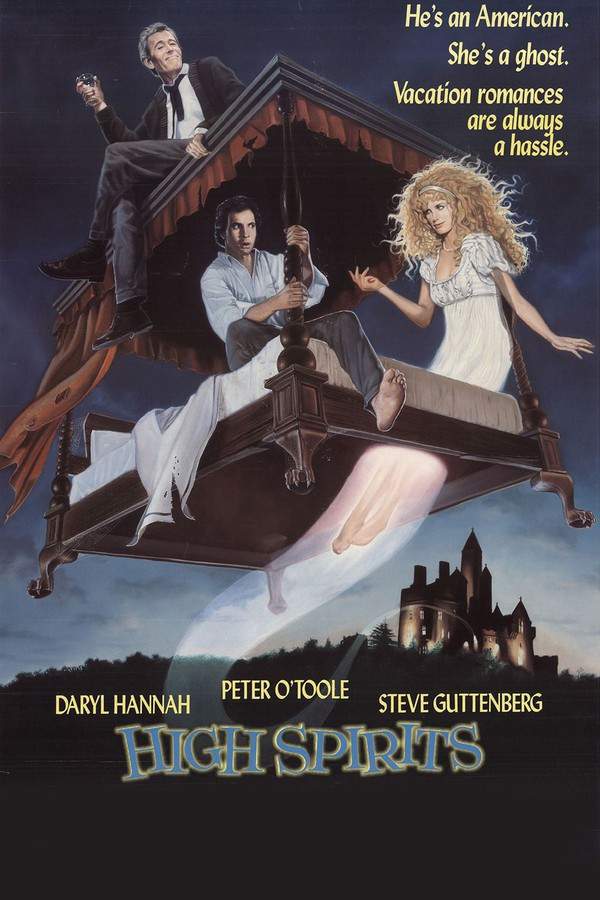
Happy Ever After
Year: 1954
Runtime: 88 mins
Language: English
Director: Mario Zampi
People who live in glass houses should turn off the lights! After General O’Leary, owner of an Irish hunting estate, dies in an accident, his nephew Jasper O’Leary inherits it. Jasper’s scheming angers the villagers, except McGluskey. Led by Thady O’Heggarty, they plot to expel Jasper, “O’Leary Night”, as O’Leary’s ghost roams halls causing chaos.
Warning: spoilers below!
Haven’t seen Happy Ever After yet? This summary contains major spoilers. Bookmark the page, watch the movie, and come back for the full breakdown. If you're ready, scroll on and relive the story!
Happy Ever After (1954) – Full Plot Summary & Ending Explained
Read the complete plot breakdown of Happy Ever After (1954), including all key story events, major twists, and the ending explained in detail. Discover what really happened—and what it all means.
Aged General O’Leary, AE Matthews, lies wounded after trying to jump a wall mounted on his horse. On his deathbed, this kindly old Irishman makes a sequence of sharp, practical bequests that will tilt the fate of Rathbarney in unexpected directions. He bequeaths £1,000 to his faithful longtime servant Thady O’Heggarty, Barry Fitzgerald, to care for and feed his horse and dog, and another £1,000 to Doctor Michael Flynn, Robert Urquhart, for keeping him alive longer than he might have lived otherwise. In a broader gesture, all debts owed to him are cancelled, a move that immediately frees up tensions among the townsfolk. But the bulk of the estate is left to a distant relative, Jasper O’Leary, David Niven, who has never even set foot in the hamlet of Rathbarney before this windfall.
Jasper’s arrival is met with mixed emotions and sharp public suspicion. He proves to be an unscrupulous, self-interested opportunist who had once flirted with a life he thought he’d never reach—until Capri’s sudden windfall altered everything. His first moves reveal a calculating, self-serving nature, and his interest in Serena McGluskey, Yvonne De Carlo, a beautiful young widow who has just returned to Rathbarney after the death of her husband, stirs both envy and curiosity among the locals. Jasper confides his plan to Serena with a dry, unsettling practicality: “Once I squeeze the lemon dry, I’m off.”
Serena, in turn, embodies a magnetic appeal but also a wary self-awareness. She is approached by Jasper with promises and possibilities that would upend the quiet, close-knit life of the village. The matter is complicated by Doctor Flynn, who remains infatuated with Serena even though she once jilted him. He is slow to perceive that Serena’s younger sister Kathy McGlusky, Noelle Middleton, loves him in return. The triangle—Jasper’s ambition, Serena’s caution, and Kathy’s longing—unfolds against a backdrop of communal suspicion and old loyalties.
Meanwhile, the locals, led byDooley, Joseph Tomelty, gather in the village pub to plot in secret. They form a kind of reluctant, haphazard lottery to decide who among them will take it upon themselves to murder Jasper. Dooley’s assistant Terence, George Cole, is chosen but faints at the moment of truth, and the plans quickly multiply, each group acting independently and often unintentionally undermining the others. The result is a farcical swirl of near-misses, crossed purposes, and sheer bad luck, as the would-be assassins never quite coordinate their efforts—preserving Jasper’s life while destabilizing the town’s sense of security.
Even as the plots to do him harm fizzle, Dr. Flynn’s feelings for Serena are tested and redirected. Serena’s own interest in Jasper persists, and with time the two begin to see possibilities that go beyond mere money or scandal. The tension between Jasper’s greed and Serena’s growing affection becomes a subtle moral counterpoint to the farcical schemes of those conspiring around them. The film nudges toward a darker irony by juxtaposing the absurdity of the plots with genuine emotional yearnings that feel earned rather than simply played for laughs.
As the story moves toward its culmination, a late-night ruse involving the supposed ghost of one of Jasper’s ancestors sends the house into shadowy whispers and eerie theatrics. The same night, an attempt to burn down the ancestral mansion for insurance proceeds reveals how far some will go when desperation and pride collide. Yet again, the conspirators—each acting on their own—miss their marks, leaving the mansion and the living residents intact but unsettled.
Father Cormac, Fred Johnson, arrives with an unexpected authority. He has been instructed by General O’Leary to open a letter on that day that will reveal the true disposition of the estate. The letter contains a new will, designed to take effect if Jasper proves unworthy, and it leaves the entire estate to Major McGluskey, the General’s loyal neighbor and fellow landowner, as a stark rebuke to Jasper’s insinuations of rightful ownership. The revelation unsettles everyone and forces a reckoning among the various would-be heirs.
Confronted with this turning point, Jasper makes a pragmatic offer: he will depart if the others will pause their scheming. Yet the moment of resolution arrives not with a courtly concession but with a personal choice. Serena, who has stood at the center of the entire tangled web, chooses to go with Jasper, signaling a fragile, transformative shift in loyalties and ambitions. The town cannot escape the specter of the general’s will, nor the complex moral questions raised by money, love, and family loyalty.
Through wit, irony, and a gentle sense of the ridiculous that underpins its Irish setting, the story threads together a broad tapestry of characters—each with their own ambitions and vulnerabilities—while maintaining a warm, gently satirical mood. The film balances humor with a quiet insight into human motives: greed and generosity, pride and forgiveness, old grudges and new possibilities. In the end, the will reshapes the community’s dynamics, and the couple at the center of the tale contends with a future that is uncertain yet perhaps more hopeful than the mansion’s walls would allow at the outset.
Once I squeeze the lemon dry, I’m off.
Last Updated: October 09, 2025 at 10:52
Explore Movie Threads
Discover curated groups of movies connected by mood, themes, and story style. Browse collections built around emotion, atmosphere, and narrative focus to easily find films that match what you feel like watching right now.
Quirky community conspiracy movies like Happy Ever After
Small towns where eccentric villagers hatch comically inept schemes.Discover movies similar to Happy Ever After, featuring charming tales of small towns and eccentric plots. If you enjoyed the farcical schemes and warm satire of 'Happy Ever After', you'll love these stories of community conspiracies and gentle humor.
Narrative Summary
Stories in this thread typically involve a close-knit group or an entire village responding to an outside threat or internal grievance with a convoluted, often ill-conceived plan. The narrative revolves around the unfolding of this scheme, which is usually marked by a series of comical mishaps, misunderstandings, and ultimately, a resolution that brings the community closer together.
Why These Movies?
These films are grouped by their shared focus on collective action in a whimsical setting, a LIGHT tone that treats serious subjects with humor, and a VARIABLE pacing that balances character moments with chaotic farce. They create a specific feel of warm, ironic comedies about human nature.
Romantic farce movies with chaotic plots like Happy Ever After
Love stories that blossom in the middle of absurdly chaotic situations.Find films with a similar blend of romance and farce to Happy Ever After. If you liked the romantic triangle unfolding amid the village's chaotic schemes in 'Happy Ever After', explore these comedies where love triumphs over absurd circumstances.
Narrative Summary
The narrative pattern involves a romantic storyline that is intertwined with a separate, often frantic, comedic plot. The chaos of the external events creates obstacles and opportunities for the romance, leading to an ironic or ambiguously happy resolution where the relationship is affirmed not by grand gestures, but by surviving the ridiculousness together.
Why These Movies?
This thread unites movies through their unique blend of a genuine romantic core (often scoring high on romance) with a high humor score derived from farcical situations. The emotional weight remains LIGHT, and the tone is consistently whimsical, creating a very specific feel-good experience that is clever rather than saccharine.
Unlock the Full Story of Happy Ever After
Don't stop at just watching — explore Happy Ever After in full detail. From the complete plot summary and scene-by-scene timeline to character breakdowns, thematic analysis, and a deep dive into the ending — every page helps you truly understand what Happy Ever After is all about. Plus, discover what's next after the movie.
Happy Ever After Timeline
Track the full timeline of Happy Ever After with every major event arranged chronologically. Perfect for decoding non-linear storytelling, flashbacks, or parallel narratives with a clear scene-by-scene breakdown.

Characters, Settings & Themes in Happy Ever After
Discover the characters, locations, and core themes that shape Happy Ever After. Get insights into symbolic elements, setting significance, and deeper narrative meaning — ideal for thematic analysis and movie breakdowns.

Happy Ever After Spoiler-Free Summary
Get a quick, spoiler-free overview of Happy Ever After that covers the main plot points and key details without revealing any major twists or spoilers. Perfect for those who want to know what to expect before diving in.

More About Happy Ever After
Visit What's After the Movie to explore more about Happy Ever After: box office results, cast and crew info, production details, post-credit scenes, and external links — all in one place for movie fans and researchers.

Similar Movies to Happy Ever After
Discover movies like Happy Ever After that share similar genres, themes, and storytelling elements. Whether you’re drawn to the atmosphere, character arcs, or plot structure, these curated recommendations will help you explore more films you’ll love.
Explore More About Movie Happy Ever After
Happy Ever After (1954) Scene-by-Scene Movie Timeline
Happy Ever After (1954) Movie Characters, Themes & Settings
Happy Ever After (1954) Spoiler-Free Summary & Key Flow
Movies Like Happy Ever After – Similar Titles You’ll Enjoy
Terribly Happy (2010) Detailed Story Recap
Happy Times (2002) Movie Recap & Themes
After Ever Happy (2022) Detailed Story Recap
Happy Endings (2005) Ending Explained & Film Insights
High Spirits (1988) Spoiler-Packed Plot Recap
Happy End (1967) Movie Recap & Themes
Happy We (1983) Spoiler-Packed Plot Recap
The Happy Ending (1969) Spoiler-Packed Plot Recap
Happy Go Lovely (1951) Movie Recap & Themes
Happy, Too Happy (1994) Ending Explained & Film Insights
Happy End (1999) Ending Explained & Film Insights
Happy Together (2008) Movie Recap & Themes
Happy Is the Bride (1958) Plot Summary & Ending Explained
Haunted Spooks (1920) Plot Summary & Ending Explained
Happily Never After (2022) Full Summary & Key Details

